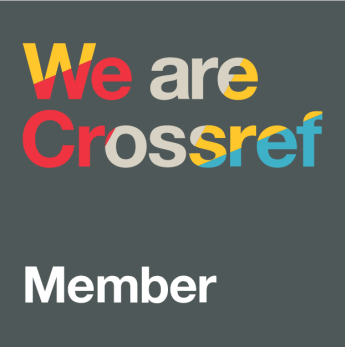IMPLEMENTASI RESTRUKTURISASI KOGNITIF MODEL COPING THOUGHT DALAM SETTING KONSELING KELOMPOK
DOI:
https://doi.org/10.22460/q.v5i1p1-8.2169Keywords:
Kata Kunci, Coping Thought, Restrukturisasi Kognitif, Konseling KelompokAbstract
Keberagaman sebuah teknik dalam setting konseling kelompok dinilai sebagai suatu obat dalam sebuah proses penyembuhan dengan berdasar pada upaya-upaya preventif maupun kuratif, namun, ketidaksesuaian antara teknik yang diberikan justru akan menimbulkan sebuah permasalahan baru oleh konseli. Dalam artikel ini menjelaskan secara spesifik tentang implementasi sebuah teknik dalam konseling yaitu restrukturisasi kognitif model coping thought secara praktis dan pendalaman materi secara teoritis. Penelitian ini menggunakan pendekatan metode deskriptif kualitatif yang mencoba untuk mendeskripsikan langkah-langkah implementasi dan kesesuaian dalam pengentasan permasalahan pribadi dan sosial. Populasi dan pemilihan sampel dalam penelitian ini didasarkan pada prinsip pendekatan kualitatif dengan penggunaan potensi sampel acak. Hasilnya implementasi restrukturisasi kognitif model coping thought ini sangat relevan diimplementasikan dalam setting konseling kelompok dan peneliti tidak menemukan kesulitan yang berarti karena pada dasarnya peneliti sudah memilah-milah secara spesifik tentang model pendekatan restrukturisasi kognitif dalam setting konseling kelompok ini.
References
Alford, B. A, Beck, A. T. (1997). The Integrative Power of Cognitive Therapy. New York: Guilford.
Anggia, dkk. (2018). Efektivitas Layanan Konseling Kelompok Teknik Restrukturisasi Kognitif Untuk Mereduksi Kecemasan Menghadapi Ujian Siswa Kelas VII Smpn 22 Kota Bengkulu. Jurnal ilmiah bimbingan dan konseling. Vol. 1 No. 2
Apriyanti, S. (2013). Efektivitas Teknik Restrukturisasi Kognitif Untuk Mereduksikecemasan Komunikasi Pada Remaja Terhadap Peserta Didik Kelas X Sma Pasundan 2 Bandung. Skripsi. Universitas putra indonesia.
Beck, A. T. & Weishaar, M. E. (2005). Cognitive Therapy. Belmont, CA: Thomson Brooks/Cole.
Beck, J. S. (2011). Cognitive Behavior Therapy Basic and Byond, 2nd Edition. New York: The Guilford Press
Cherian. J & Jacob. J. (2013). Impact of Self Efficacy on Motivation
and Performance of Employees. International Journal of Business and Management; Vol. 8, No. 14. Published by Canadian Center of Science & Education.
Colorafi, K. J., & Evans, B. (2016). Qualitative descriptive methods in health science research. HERD: Health Environments Research & Design Journal, 9(4), 16-25.
Fitri, E. N., & Marjohan,M. (2017). Manfaat Layanan Konselingdalam Menyelesaikan Masalah Pribadi Siswa. Jurnal EDUCATIO; Jurnal Pendidikan Indonesia,2 (2),19-24.
George, A. L. (2019). Case studies and theory development: The method of structured, focused comparison Alexander L. George: A pioneer in political and social sciences (pp. 191-214): Springer.
Iswatun. H. (2018). Efektivitas Koneling Kelompok Dengan Teknik Cognitive Restructuring Untuk Menurunkan Perilaku Bullying Pada Siswa Smp Plus Nurul Hikmah Pamekasan. Jurnal konseling indonesia.Vol. 3 No. 2. Hlm 42-47.
Jones, R. N. (2011). Teori dan Praktik Konseling dan Terapi (Eds 4). Yogyakarta: Pustaka Pelajar.
Novita, dkk. (2016). Manfaat Layanan Konseling Kelompok Dalam Menyelesaikan Masalah Pribadi Siswa. Jurnal pendidikan indonesia. Vol. 2. No. 2. Hlm 19-24.
Noviandari, H & Kawakib, J. (2016). Teknik Cognitive Restructuring Untuk Meningkatkan Self Efficacy Belajar Siswa. Jurnal psikologi: Jurnal ilmiah fakultas psikologi universitas yudharta pasuruan. 3 (2),76-86.
Sugiharto, D. Y. P. (2012). Konseling Kelompok Dengan Teknik Restrukturisasi Kognitif Untuk Meningkatkan Kepercayaan Diri Siswa. Jurnal bimbingan dan konseling, 1 (2).
Sanyata, S. (2010). Teknik Dan Strategi Konseling Kelompok. Jurnal paradigma. No. 5.
Sulistiya, E., Sugiharto, D. Y. P., & Mulawarman, M. (2017). Dampak Konseling Kelompok Cognitive Behaviour Therapy (Cbt) Teknik Cognitive Restructuring Untuk Meningkatkan Body Image. Jurnal bimbingan dan konseling, 6 (2), 135-140.
Sugiyono. (2012). Metode penelitian pendidikan:(pendekatan kuantitatif, kualitatif dan R & D): Alfabeta.
Windaniati, W. (2015). Meningkatkan Kemampuan Penyesuaian Diri Siswa melalui Teknik Cognitive Restructuring Pada Kelas X Tkr 1 Smk Negeri 7 Semarang Tahun 2012/2013. Jurnal penelitian pendidikan. 32 (1).
Downloads
Published
How to Cite
Issue
Section
License
Copyright (c) 2021 QUANTA

This work is licensed under a Creative Commons Attribution-ShareAlike 4.0 International License.
Quanta: Jurnal Kajian Bimbingan dan Konseling dalam Pendidikan is licensed under a Creative Commons Attribution-ShareAlike 4.0 International License. Authors who publish with the Quanta Journal agree to the following terms:
- Authors retain copyright and grant the journal right of first publication with the work simultaneously licensed under a Creative Commons Attribution License that allows others to share the work with an acknowledgment of the work's authorship and initial publication in this journal.
- Authors are able to enter into separate, additional contractual arrangements for the non-exclusive distribution of the journal's published version of the work (e.g., post it to an institutional repository or publish it in a book), with an acknowledgment of its initial publication in this journal.
- Authors are permitted and encouraged to post their work online (e.g., in institutional repositories or on their website) prior to and during the submission process, as it can lead to productive exchanges, as well as earlier and greater citation of published work.

























